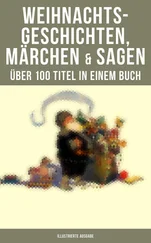“Berliner Dialekt,” GS, 7.1, 68–74. Translated by Jonathan Lutes.
Broadcast on Radio Berlin. The exact date of broadcast has not been determined, but it was almost certainly one of several broadcasts Benjamin gave in November and December of 1929 on subjects related to Berlin; during these months, the Berlin radio journal Funkstunde [Radio Times] advertised, without specific titles, several broadcasts by Benjamin during the Berlinstunde [Berlin Hour].
1 Berliner Schnauze , which can be loosely translated as “Berlin snout,” refers to both a way of speaking and an attitude. It connotes both the physiological (snout, schnoz, nose, muzzle, gob, or mug) and the linguistic-cultural (insolence, coarseness, lip, sass, wit, yap). It designates a style specific to Berliners, and more exclusively, to working-class Berliners. For more of Benjamin’s comments on Berlin dialect, see “Wat hier jelacht wird, det lache ick” [If anyone’s laughing here, it’s me] in GS, 4.1, 537–42 (first published in the Frankfurter Zeitung , May 5, 1929). Both in its stated emphasis on Berlin dialect as spoken, everyday language and in the rhythm and inflections of Benjamin’s own syntax (which here includes, even in its typescript form, indications for what some linguists call “filler” words or, in German, modal particles, words such as “so” and “well” and “now”), “Berlin Dialect” stands out, in focus and style, as perhaps the most “spoken” of Benjamin’s radio talks for children.
2Fritz Reuter (1810–1874) was a writer from Mecklenburg in Northern Germany known for his contributions to Low German literature; Johann Peter Hebel (1760–1826) wrote in the German dialect of Alemannic; Jeremias Gotthelf (1797–1854) was a Swiss novelist.
3Our English translation does not pick up the bawdy humor at play in the Berlin dialect. In addition to the comedy of the woman correcting her husband’s grammar while making grammatical mistakes of her own, the preterite of the German verb essen (to eat) is aß (ate), which in Berlin dialect sounds like Aas , or carrion, but which also has a slang meaning of “bitch” or “bugger.” Her response, in other words, amounts to both “I ate” and “I’m a bitch.”
4The character of Nante the Loafer ( Eckensteher Nante , or Nante, the man on the corner) is a figure of working-class Berlin, popularized in the work of Adolf Glassbrenner. See also in this volume “Theodor Hosemann.”
5Max Liebermann (1847–1935) was a German-Jewish painter, printmaker, collector, lifelong Berliner, supporter of Impressionism in Germany, and first president of the Berlin Secession. He served as the president of the Prussian Academy of Art from 1920 to 1933. Walter Bondy (1880–1940) was a Jewish painter, editor, art critic and collector. Born in Prague and raised in Vienna, he studied and lived in Berlin, where he was affiliated with the Berlin Secession.
6Heinrich Zille (1858–1929), German illustrator known for his humorous depictions of working-class life in Berlin.
7Here Benjamin uses the word Göre , or brats, but spelled as it would be pronounced in Berlinish: Jöhre. Throughout, his quotations have reproduced the variant spelling of Berlin dialect, but here he has incorporated it into his own language.
8Hans Meyer, Der Richtige Berliner in Wörtern und Redensarten (Berlin: H. S. Hermann, 1904).
9This passage appears in Hans Ostwald, Der Urberliner in Witz, Humor und Anekdote (Berlin: P. Franke, 1927), 39, as well as in Adolf Glassbrenner, Berliner Volksleben , vol. 3 (Leipzig: Wilhelm Engelmann, 1851), 248–9. In this instance, Benjamin’s typescript, rather than giving a full quotation, refers only to “Ostwald, p. 39”; it is unclear whether Benjamin read aloud from this particular passage or from another of Ostwald’s many books. As Benjamin’s typescript does not provide a full quotation, we follow the editors of the GS, who provided the passage.
10Alfred Döblin was a speaker on the Berlin Radio Hour from 1925 through 1931, with most of his work for the radio done between 1928 and 1930. Perhaps his most famous contribution to Weimar radio was a never broadcast script, The Story of Franz Biberkopf , the radio play for his novel Berlin Alexanderplatz (1929); scheduled to go out on September 30, 1930, it was cancelled at the last minute due to fear over Nazi reprisals. As Peter Jelavich puts it, “In the atmosphere of fear and panic in the weeks following the elections of 14 September 1930, when the Nazis emerged as the second strongest party in the Reichstag, the political oversight committee of Berlin’s station balked at airing a work by a well-known leftist Jewish author” ( Berlin Alexanderplatz: Radio, Film, and the Death of Weimar Culture, 93). For Döblin’s early contributions to Weimar radio, see ibid., 75–8; and for a reference to Benjamin’s reading of the necktie-holder vendor scene from Berlin Alexanderplatz , and the political and formal issues raised by its transposition to radio, both in Benjamin’s reading and in Döblin’s radio script, see ibid., 29–30, 102–3. See also Benjamin’s discussion of Döblin’s novel — as a new form of epic narration, as well as “a monument to the Berlin dialect”—in “The Crisis of the Novel” [1930], SW, 2, 299–304 (GS, 231–6).
11In March 1926, a “hunger artist” named Jolly sold tickets to an exhibition of himself fasting, setting a new world record of going without food for forty-four days.
12Alfred Döblin, Berlin Alexanderplatz (Berlin: S. Fischer Verlag, 1929), 72ff. The passage, slightly modified from Döblin, is provided by the editors of the GS based on Benjamin’s page number reference in the typescript.
13Amanullah Khan, sovereign of Afghanistan from 1919 to 1929, visited Berlin in 1928. “Iron Gustav” was a coachman who drove his carriage from Berlin to Paris and back in 1928.
14The German here is a pun on the verbs kriegen (to get) and kriechen (to crawl). When the drunkard asks, “Kricht man hier Rum?” [You got any rum here?], the barkeep pretends to have heard “Kriecht man herum?” [Does one crawl around?], and answers “Hier setzt man sich” [In here we sit]. The pun depends on the words being pronounced in Berlin dialect.
CHAPTER 2. Street Trade and Markets in Old and New Berlin
Are you familiar with the fairy tale, “The Golden Pot”? Do you recall the strange old apple monger whom the student Anselmus runs into as the story begins? 1Or do you know Hauff’s tale “Little Long-Nose,” which begins at a market where a witch touches all the goods with her spidery fingers to pick out the best ones? 2And when you visit the market with your mother, is it not sometimes thrilling and festive? For even the most ordinary weekly market has some of the magic of oriental markets, such as the Samarkand bazaar. Have you seen the new film shot at the market at Wittenbergplatz? 3It’s more thrilling than most detective films. One thing that’s missing in the film — and even books seldom deal with it — is the market talk: the bargaining and trading, all the back-and-forth of goods and money that is, in its own way, as rich and sumptuous for the ear as the image of the market is a feast for the eyes. This is particularly true of the Berlin market. Some months ago I spoke to you here about the dialect of Berlin. The market, and street trade in general, is now one of the places where Berlinish can best be overheard and appreciated in its richness and variation. It’s the street trade of old and new Berlin that I’d like to talk to you about today.
Market women were already something very special in old Berlin. Of all merchant women, they were alone in having permission to offer their wares at the weekly market, and were mostly women farmers peddling their own produce. Quite different were the so-called hawker women. They were forbidden to sell the better goods and, as compensation for being permitted to trade, were forced to spin four pounds of wool per month for the warehouse. As even their purchasing was greatly restricted — they were not allowed to buy directly from farmers, but had to stock up on left-over goods from other vendors at closing time on market days — the hawkers did measly business, eking out only a meager living for their families. This was still the case as late as the eighteenth century. And if a woman of low standing wanted to contribute to the family budget, as so many soldiers’ wives did, there was sometimes no other option but to become a hawker. For a proper market woman, then, there was no greater insult than to be called a “hawker.” So, in one of his best scenes, Glassbrenner depicts a market woman and everything that comes to her mind as she tells off, with her world-famous Berlin Schnauze , 4a customer who has just muttered “hawker” in her direction. “Hawker?” she repeats, standing up, arms akimbo: “Listen here, you old dog, go bark at some other stall or I’ll stomp on your paw so hard you’ll be whining for eight days.” The man says: “Well, well, isn’t it remarkable how these hawkers can scold.” Hawker: “Scold? Such a daffy beanpole of a guy like you, you can’t even be scolded; you’re already two or three times worse than anything vile I’d say about you. Such a shadow of a male specimen you are, always trying to get the best of someone. You filthy pedant, you wanna bully us around? Is that it? Why not just hang yourself, so no decent person’s forced to commit a crime against you. Go curl up in a ball. Go see the rag man and sell yourself for a quarter pound of rags. Take some gravel and rub yourself clean so there’s nothin’ left of you. Go hang yourself from the moon so the good-for-nothings can go home early! And steer clear of the choirboys, or they’ll start singing: God of my mercy shall preserve me!” 5It had become an actual sport to lure the market women to rant. And you can see here that it paid off.
Читать дальше












